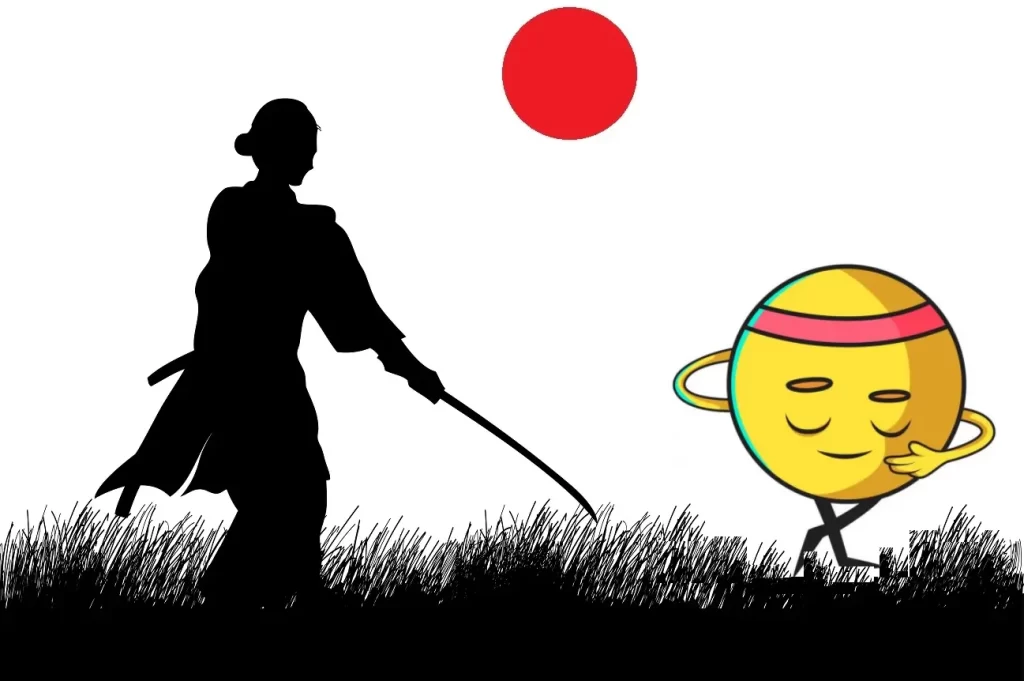Japanese Business Etiquette and Manners

If you are new to Japan, the first thing you may say is that etiquette is etiquette. What’s so special about Japanese business etiquette, and why should I care?
Well, you are not much off the mark. In today’s global village, there is a lot of cultural mix, especially how we conduct business. However, some things stay unique in different parts of the world. Moreover, this statement becomes more profound for Japan, an island country with 260 inhabited islands out of a total of 14,125.
Historical, geographical, and cultural factors have shaped Japanese business etiquette. Centuries of self-imposed isolation under the “sakoku” policy during the Edo period fostered the development of unique societal norms and values.
Concurrently, Japan’s vulnerability to natural disasters, including earthquakes and tsunamis, has reinforced a sense of community and mutual reliance, emphasizing the importance of harmony, respect for hierarchy, group cohesion, and risk aversion as norms not just for daily life but as business etiquette.
Why the Understanding Matters?
Cultivating a strong sense of Japanese business etiquette will help build strong relationships with your coworkers and other companies in Japan.
In the business world, having a strong reputation and relationships are crucial. And it certainly impacts how others perceive being in your company and doing business with you. Hence, sensitivity to adapting to local business etiquette is crucial.
Japanese companies are undoubtedly open to increasing multicultural diversity by attracting foreign talent. However, success here highly depends on how well foreigners adapt to Japan’s work culture.
This article will discuss the rules and tips to help you navigate and succeed in the Japanese business world.
Japanese Etiquette to Follow in Business
This article will discuss the must-know etiquette for doing business in Japan. These are as follows:
- Keep Your Self-Introduction Short
- Be Early and Not Just Punctual
- Remember Names and Titles
- Schedule and Prepare Ahead
- Handle Business Cards with Care
- Be Sensitive to the Seating Protocols
- Accept Offered Drinks and Pour for Others
- Manage Expectations
- Constant Updates & Agreement
- Not Stepping on Anyone’s Toes
- More Focus on Listening
- Being Confident but be Humble
- Apologize Profoundly for Mistakes
- Dress Formally
- Speak some Japanese
Keep Your Self-Introduction Short
Keeping your self-introduction short and snappy in English or Japanese will go down well with your new coworkers and business partners. Simply shake hands or bow, state your name, and greet them. The go-to phrase here is “yoroshiku onegaishimasu” (よろしくお願いします), and I will explain it later in this article.
Nothing more really needs to be said unless asked. Talking about yourself or asking personal questions immediately can be considered rude in Japan. So, save it for after-work nomikai drinks!
Be Early and Not Just Punctual
As a monochromatic culture, punctuality is essential to Japanese culture. Time is strictly observed across all industries to the point where trains and buses regularly arrive exactly on time.
In Western cultures, people generally aim to arrive on time for business meetings. However, in Japan, people are expected to arrive at least 5 minutes early, and meetings will begin promptly on time. Showing up even a few minutes late will surely leave attendants with the first sign that you are not dependable.
Remember Names and Titles
Names and titles are the lifeblood of Japan! In English, you can get away with forgetfulness by using pronouns. However, the Japanese language dictates it impolite to refer to someone as “he,” “she,” “they,” etc., making it vital to commit names to memory as soon as possible. This can be done by making a conscious mental note upon hearing a name and then jotting it down later.
In Japan, people generally refer to each other using the family name (surname) instead of the first name. It is customary to add ‘San’ or a more polite form, ‘Sama’ at the end of others’ family names while addressing them.
Foreigners often translate ‘San’ as Mr., Mrs., or Miss, but it is a gender-neutral honorific to convey respect to a person or entity. For example, it is a norm to use ‘San’ or ‘Sama” even for a company’s name or any other entity that deserves respect. If someone requests you to call them by their first name, then it’s okay to use it. However, if no one has mentioned it, please use the person’s last name.
While meeting your clients or business partners, you must avoid using ‘San’ with the name of your colleagues, regardless of their seniority. Conveying such gestures of respect for your office people in front of outsiders is considered a relative disrespect for the business partner.
Schedule and Prepare Ahead
Although living in such a digital world calls for PowerPoint presentations and virtual experiences, printed documents still go much further in Japan.
It’s a common courtesy to prepare meeting documents, business cards, etc., ahead of time. You should also carry a copy of the documents for everyone attending the meeting.
If you’re making a presentation as a team, define everyone’s roles beforehand to avoid getting into disagreements and giving out wrong information.
If the presentation is in English, be mindful of the pronunciation and speed of your speech. Although you’ll be working with professionals, understand that English isn’t the first language for most Japanese people. Hence, they might not understand many expressions, which may be normal for you. So, keep your language professional, clear, and easy to understand.
Handle Business Cards with Care
Business cards might seem like such a small, insignificant thing. In Western countries, people casually give business cards away as a simple means of contact. In Western countries, people may exchange cards at any point during the meeting and sometimes neglect the business cards. However, in Japan, business card exchange is mandatory. If you missed carrying your cards, you should apologize.
Business cards are very significant in Japan. It’s proper business etiquette to always bring business cards with you. In Japan, you must exchange Business cards at the beginning of the first meeting.
Offering business cards in Japan starts with the most senior leader and then goes down to the most junior team member. You should offer and receive the business cards with both hands, facing upwards, with a slight bow.
When you receive a business card, don’t immediately sort it away. Please read the name and title and speak it out. Reading the card carefully is a sign of respect. After reading the card, place them face-up on the table until the end of the meeting.
Be Sensitive to the Seating Protocols
Yes, you heard this right! It may surprise people new to Japan that where you sit during business meetings and even business dinners can make or break relationships and deals.
Seating protocols are very important in Japan. Many modern companies do not follow the seating protocols rigidly. However, it is always better to be safe by following these protocols when you are in the company of senior people.
Accept Offered Drinks and Pour for Others
It’s customary for the hosting party to serve drinks like tea or coffee during meetings. Refusing to accept the offerings can come off as rude. If you find yourself uninterested in the snacks or beverages served, you can accept them without consuming them.
Moreover, during business dinners, keep an eye on the emptying glasses of the business partners and pour drinks before the glass is empty. You can read more about it here.
Manage Expectations
Japanese companies typically look for long-term partnerships, which take time, trust, and commitment to building. Decision-making in Japan can be a very long process. Hence, it’s extremely unlikely that you’ll receive a “yes” or a “no” answer during your first meeting.
Even if you felt the meeting went exceptionally well, wait until the follow-up before jumping to conclusions about the business deal.
Following up is okay if it’s been a few days and you still await a response. However, avoid applying too much pressure in case of delay.
Moreover, please remember that complete silence from the Japanese means a “No.” In case of silence, any aggressive follow-ups with your Japanese counterparts may jeopardize your future prospects.
The Japanese tend to avoid direct statements. This lack of direct statements may make you misinterpret responses such as “It is difficult” or “We’ll think about it.” Although these phrases seem hopeful, they are a polite and indirect way of saying no.
Constant Updates & Agreement
Teamwork and consensus are integral parts of Japanese businesses. Whether you are on track for the tasks you have undertaken or lagging, Japanese management and peers expect everyone to be on the same page about progress.
Japanese projects, especially software projects, generally do not work by having rigid requirements initially and then executing the tasks to meet those requirements.
In Japanese projects, changes are frequent as you move ahead. This scenario demands a collaborative approach and continuous communication in an agile way.
Please communicate and update your team and management, not just about the successful completion of tasks but progress and even delays and failures on the way.
Not Stepping on Anyone’s Toes
While your brain may be bursting with hundreds of ideas for revolutionizing business, it’s best to hold them back until you’re familiar with the lay of the land.
Even after several months, you must abide by the chain of command to avoid stepping on anyone’s toes. Going straight to your shacho (president) will upset the bucho (department chief) and disrupt the pecking order. Get to know who reports to whom and find the individual you should be talking to.
Listen More, Talk Less
While you may be tempted to ask many questions, resist and focus on listening. If you want to appear enthusiastic, take notes and practice aizuchi back-channeling. Of course, if you genuinely lack clarity or are curious about something, by all means, fire away!
Being Confident but be Humble


Japanese manners are all about being humble. While greetings should be clear and confident to show enthusiasm, going overboard can be arrogant and disruptive. It may be challenging, but finding the sweet spot between confidence and respect will give you a fantastic standing at any Japanese company!
Apologize Profoundly for Mistakes
Whether you are fresh out of college or a seasoned professional, mistakes at work can happen to anybody. Of course, this is true in Japan too.
However, responses and reactions in Japan can sometimes differ significantly from overseas. Even if they are completely valid, making an excuse is considered immature and dodging responsibility. The best way of getting out of trouble in the Japanese workforce is simply stating your mistake and apologizing profusely.
Apologizing for mistakes can go a long way in smoothing over situations and preventing bad blood from forming between you and your colleagues. Memorize and use the phrases below, when appropriate, to convey your sincerity, allowing everyone to move on and work towards a solution.
Dress Formally


Knowing what to wear in office settings is always a concern, but there are some extra rules regarding appropriate clothing in Japan.
While things are changing a bit, Japanese offices tend to have a rather old-school view of workwear overall. While those who wear suits don’t need to worry too much, people working in more flexible industries need to think about their apparel a bit more.
Japanese Business Dress Codes for Men
For dress codes, Japan is one of the most formal countries.
Before the Tsunami in 2011, you would hardly see a person going to the office without formal suits. This situation has greatly changed since that disaster affected electric power generation and transmission.
After the Tsunami of 2011, the government and business houses recommended that air-conditioning systems be run optimally and that a more casual dressing approach be followed to avoid discomfort. However, deep down, the formal approach remains in force.
Even young startups in Japan consider jeans and T-shirts far too casual to conduct business in. Sticking with a dark-colored suit and light-colored shirts or tops is much safer for more formal setups. If you are unsure about the expected dress code, it is always advisable to be safe and wear proper formal clothes, i.e., suits.
Even if the organization you work at does not follow the suit culture, a nice pair of dark pants and a dress shirt is always better to wear at the workplace.
However, you should wear a suit and tie for any meeting with business partners and clients. Unlike in Western countries and many other countries, men in Japan avoid wearing bright-colored ties.
Japanese Business Dress Codes for Women
- Even when it is very hot, you should keep your shoulders covered, so avoid wearing tank tops, camisoles, or sundresses. Make sure your shirt has sleeves, even if they are short.
- In case you are wearing a skirt, wearing skin-colored stockings is advisable.
- Remember that sandals and open-toed shoes are not appropriate footwear in Japanese offices. Most people understand that flip-flops are not business wear, but people in Japan avoid even fancy sandals at the workplace.
- For women, it is best to keep your chest well-covered and ensure your neckline isn’t too revealing when bowing. Skirt lengths should be around the knee, and very form-fitting clothing is usually considered a bit too much.
- For those who attend client meetings, a good coat in a relatively subdued tone and a bag with a solid base are important. You will be expected to place your bag on the floor, and having it flop over might look unprofessional and slack.
- The general relative modesty in dress also extends to accessories. Most people do not wear large jewelry, heavy watches, or accessories with large designer logos to the office. However, small necklaces, earrings, and rings are all acceptable, but statement pieces and expensive high-end jewelry will look out of place. Those who wear ties should opt for relatively muted colors and patterns.
- Wearing sunglasses is normal in the U.S. and Europe, but sunglasses are considered overly casual for the office in Japan.
- Another easily made faux pas I have made myself is wearing black the “wrong way.” While black suits and dresses are common workwear, be careful not to pair them with a black/very dark-colored tie, pearls, or low black heels, as this is the outfit people wear to funerals!
For people of either gender, the right way to ensure you aren’t over (or under) dressing is to try to match your colleagues’ level of formality. This can vary significantly from office to office and whether you have a client-facing role or not, but in general, blending is a virtue in Japanese workplaces.
No Japanese? Use Japanese Greetings and Common Phrases
Even in an English environment, you will always impress your Japanese coworkers with any Japanese phrases you can muster.
Any use of Japanese will also create an impression that you tend to put extra effort into integrating.
Using Japanese greetings can go a long way, even if you do not speak Japanese.
Simply say your name followed by “to moshimasu (と申します)” and the aforementioned “yoroshiku onegaishimasu” for a flawless Japanese introduction with a lasting impression. Also, please remember that Japanese communication is not just about the language; maintaining protocols is very important.
Formality and respect for others are very important in Japanese workplaces. Even if you follow all the business etiquette mentioned above, your job is half done if you do not use some common Japanese phrases in your work-related dealings.
Conclusion
If there’s one thing to remember from this article, it’s to be humble, respectful, and enthusiastic.
Even if you fumble with your Japanese or struggle with rules, following Japanese business etiquette will demonstrate that you possess the right mindset—and that’s more important than anything else for succeeding at your work in Japan!


A long-term ex-pat in Japan, Himanshu comes with an IT background in SAP consulting, IT Business Development, and then running the country operations of an IT consulting multinational. Himanshu is the co-founder and Managing Director of ReachExt K.K. and EJable.com. He is also an Advisory Board Member of a Silicon Valley AI/IoT startup.

